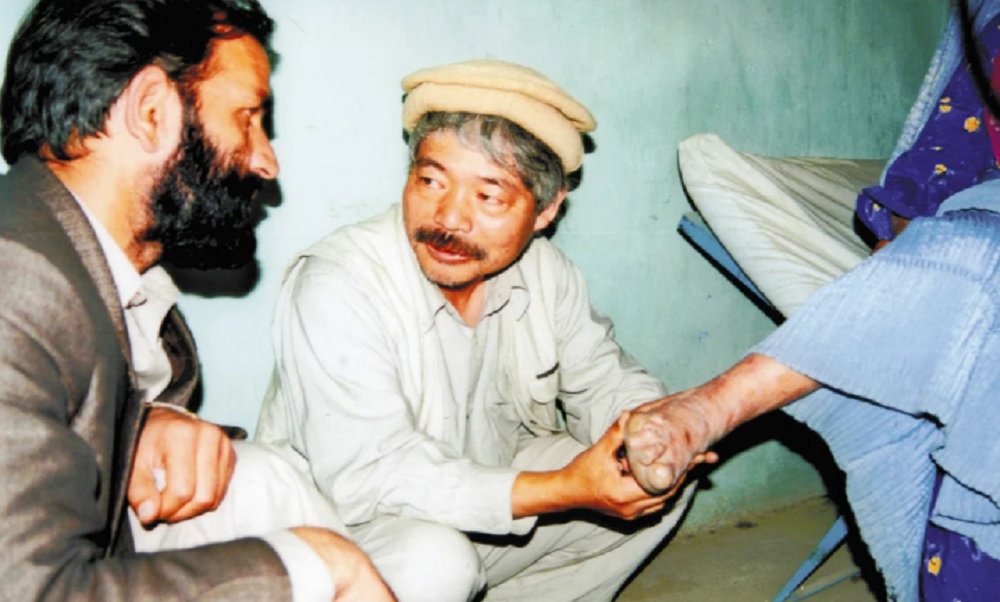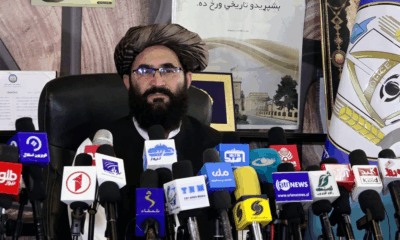Health
Daily Exercise Prevents 7 Types of Cancer

Recent medical researches indicate almost half of all cancer types can be fought by daily exercise and it can prevent many types of cancer including breast and intestinal cancer.
It is never late to start and you can get the benefits whenever you begin exercising. Daily practice ofexercise decreases possibility of following cancer types: Vaginal Cancer, Intestinal Cancer, Prostate Cancer, Breast Cancer, Lung Cancer, Testicular Cancer and Stomach Cancer
Yale University researchers declared there is a chance of 34% reduced vaginal cancer in women who exercise about 150 minutes in a week.
The studies published in the British Medical Journal shows that people who exercise at least 30 minutes in a day are less likely to develop intestinal cancer. Studies conducted in 55,489 men and women between the ages of 50-64 years and they were studied for 10 years.
Men who are practicing recreational sports or exercising with moderate-intensity during the week are less likely to infect with prostate cancer.
Women who have a family history of breast cancer can exercise for 20 minutes at least 5 days of the week to decrease a quarter the risk of infecting with cancer. Studies have also shown that people with BRCA gene who exercise during adolescence may have a low risk of infecting with breast cancer.
Exercise can decrease the possibility of lung cancer with people who smoke. University of Minnesota has studied in this regard and filled about 36,929 questionnaires. Results showing people who exercise will infect to lung cancer rarely.
Researches also showing women exercising a lot are infecting with testicular cancer hardly. Aerobic physical activities which increase the heartbeats is the most suitable exercise for preventing to infect with this type of cancer.
People who exercise with moderate intensity reduce the chance of infecting to stomach cancer to 50 percent. Researches conducted by Ontario University scientists determined that exercising with sufficient intensity 3 days in a week decrease the possibility of infecting to stomach cancer 20 – 40 percent.
Thus, medical researches strongly suggest daily practice of exercise to fight several diseases including the upper mentioned types of cancer. Jogging and walking are believed to be necessary exercise in daily life and even suggested for elderly.

Health
Japanese charity Peshawar-Kai to resume leprosy treatment in Afghanistan

Peshawar-Kai, a Japanese aid organization, has announced that it will resume leprosy treatment in Afghanistan after around 15 years.
The charity will treat leprosy patients in memory of its former head Tetsu Nakamura, Japan’s Yomiuri Shimbun newspaper reported.
The NGO will begin its leprosy treatment program in Afghanistan this year.
It will treat patients in areas such as Nangarhar province by providing medicines, training staff and sending mobile treatment teams.
Leprosy, also known as Hansen disease, is a chronic infectious disease caused mainly by a type of bacteria called Mycobacterium leprae. The disease affects the skin, the peripheral nerves, the mucosa of the upper respiratory tract and the eyes.
Nakamura started treated leprosy patients in Pakistan in the 1980s and then began extensive activities, including the construction of water supply canals in Afghanistan.
The Japanese aid worker was killed in an armed attack in Jalalabad in December 2019.
Health
WHO confirms second Polio case in Afghanistan
The Islamic Emirate of Afghanistan’s Public Health Ministry has not yet commented.

The World Health Organization (WHO) has confirmed the second case of polio in Afghanistan for the year 2025.
The case was identified in March in Helmand province.
This follows the first reported case in the Bala Murghab district of Badghis province, where a five-year-old girl was diagnosed with the virus.
Additionally, 18 environmental samples testing positive for the polio virus have been reported in provinces including Kandahar, Helmand, Kabul, Laghman, Nangarhar, and Zabul.
Afghanistan and Pakistan remain the only countries where polio has not been eradicated.
Polio is a viral disease for which there is no cure, and vaccination is the only way to protect children from it.
The Islamic Emirate of Afghanistan’s Public Health Ministry has not yet commented.
Health
Afghanistan strengthens healthcare system through collaborations with UNDP and UNFPA
Among those who Jalali met with were Stephen Rodriques, UNDP representative to Afghanistan, and Koffi Kwabena Asante, the UNFPA representative to Afghanistan.

In a series of high-level meetings Mawlawi Noor Jalal Jalali, Minister of Public Health of the Islamic Emirate of Afghanistan (IEA), has engaged with key international partners in a bid to bolster Afghanistan’s healthcare infrastructure.
Among those who Jalali met with were Stephen Rodriques, United Nations Development Programme’s (UNDP) representative to Afghanistan, and Koffi Kwabena Asante, the United Nations Population Fund (UNFPA) representative to Afghanistan.
Discussions between them highlighted the importance of collaborative efforts to address the country’s most pressing health challenges and ensure long-term, sustainable improvements.
The first meeting with Rodriques focused on the deployment of solar energy solutions to power healthcare centers across Afghanistan, particularly in remote and underserved areas.
Both parties explored the criteria for selecting appropriate sites for these solar-powered initiatives, underscoring the critical role of renewable energy in enhancing healthcare access.
The dialogue also covered integrated approaches to combat endemic diseases such as malaria, tuberculosis, and HIV/AIDS.
Jalali emphasized the importance of effective disease control, which, he noted, requires precise coordination and operational transparency to ensure impactful service delivery.
In response, Rodriques reaffirmed UNDP’s commitment to maintaining transparency and accountability in its interventions, pledging continued support for strengthening Afghanistan’s healthcare system.
The second round of discussions with UNFPA representatives Koffi Kwabena Asante and Andrew Saberton revolved around revitalizing the Afghan health sector, securing sustained financial support, and optimizing aid management.
Jalali stressed the need for a strategic overhaul of resource allocation to optimize international assistance and align efforts with national health priorities.
The discussions also delved into transitioning mobile health teams into permanent centers to expand healthcare access, as well as enhancing service delivery in line with the ministry’s health policy.
Jalali reiterated the importance of transparency in resource management to ensure the efficacy and sustainability of healthcare services.
Saberton commended the Afghan government’s commitment to these principles and assured that UNFPA would continue to provide vital resources to improve health outcomes in Afghanistan.
Both meetings highlighted the shared vision of fostering greater transparency, accountability, and long-term sustainability in Afghanistan’s healthcare system.
Through strategic collaborations with UNDP and UNFPA, Jalali aims to drive impactful reforms that will improve healthcare access and outcomes across the country.
The commitment of both organizations to supporting Afghanistan’s healthcare sector underscores the importance of international partnerships in tackling complex health challenges and ensuring the well-being of the Afghan people.
-

 Latest News5 days ago
Latest News5 days agoCabinet Meeting convened to discuss Afghanistan’s population census plan
-

 Regional4 days ago
Regional4 days agoAt least 26 civilians killed in Indian strikes on Pakistan: Islamabad
-

 Regional4 days ago
Regional4 days agoIndia strikes Pakistan over Kashmir tourist killings
-

 Science & Technology4 days ago
Science & Technology4 days agoSkype ends operations after 22 years of service
-

 Latest News4 days ago
Latest News4 days agoIslamic Emirate of Afghanistan ‘concerned’ over rising tensions between Pakistan and India
-

 World4 days ago
World4 days agoMacron to meet Syrian president on Wednesday, expected to discuss security
-

 Latest News4 days ago
Latest News4 days agoPassport Directorate earns nearly 13 billion AFN in one year
-

 Health4 days ago
Health4 days agoWHO confirms second Polio case in Afghanistan















